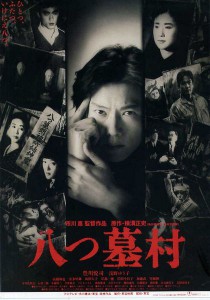
400 hundred years ago the inhabitants of the village of Yatsuhaka murdered 8 samurai rebels, whom they were actually helping to hide away, afraid of what the Shogunate would do to them. Before dying one the samurai puts a curse on the village. Strange things start to happen so the villagers decided to erect 8 graves for the murdered samurai to appease their anger. Then four hundred years later the head of Tajimi family and head of the village goes mad and starts killing almost everyone in the village. 25 years later his eldest son is poisoned. Kindaichi Yousuke detective is hired by the family’s lawyer as everyone in the village believes is the curse of the samurai again.
Read More »
Tag Archives: japanese
Fudatsuki bakuto / A Wad of Notes (1970) Shigehiro Ozawa, Masahiko Tanimura, Action
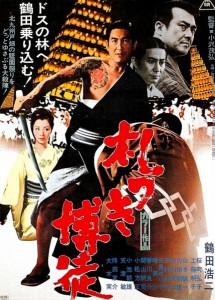
A lone gambler tries to keep a yakuza family from taking over a festival in Kitakyushu. After away from his hometown for 13 years, Ryuji comes back and saves the town that is becoming run-down from yakuza’s ill deeds.
Read More »
Dasso yugi / Jail Breakers (1976) Kôsaku Yamashita, Shin’ichi Chiba, Haruko Wanibuchi, Eitarô Ozawa, Action, Crime
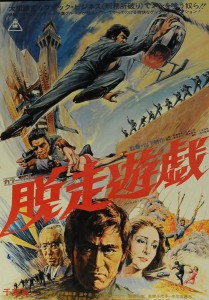
The film is packed with nice stunts throughout, but the screenplay could be better. After escaping the prison Chiba teams up with a bunch of thugs, who design prison escapes for money. Unfortunately trust and loyalty are unknown concepts to these men who take turns deceiving each other. The endless “who’s-cheating-who” game has been done better in other films, and sometimes the writing is downright sloppy: when a carefully planned escape operation fails, Chiba simply steals a fire engine and drives away without anyone noticing! It also feels that director Kosaku Yamashita, who made his name with yakuza films, was a bit out of his element here. However, even with these weaknesses it’s an entertaining action comedy which compares favourably against some of the later, similar Yasaku Matsuda films like Execution Game (1978) and No Grave for Us (1979). The focus is on stunts and comedy.
Read More »
Jigoku no okite ni asu wa nai / Glorious Fights (1966) Yasuo Furuhata, Ken Takakura, Rentarô Mikuni, Yukiyo Toake, Action
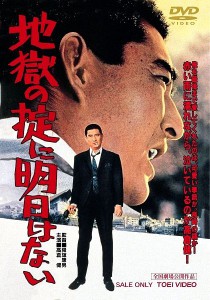
A young leader of the Yamazaki family of Nagasaki, Takida (Ken Takakura) is an A-bomb survivor. He fiercely battles violent elements in southern Japan without fear of consequences.
Read More »
Nihon jokyo-den: ketto midare-bana / Bloodiest Flower (1971) Kôsaku Yamashita, Sumiko Fuji, Ken Takakura, Masahiko Tsugawa, Crime, Drama
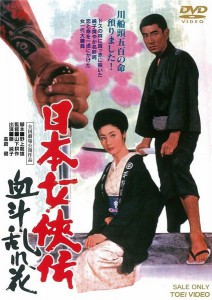
The story of Tei, a female coalmine operator, who risks her life to protect the business that was passed on by her late husband.
Read More »
Doto no taiketsu / Showdown at the Great Tone River (1959) Yasushi Sasaki, Utaemon Ichikawa, Chiezô Kataoka, Action, Drama
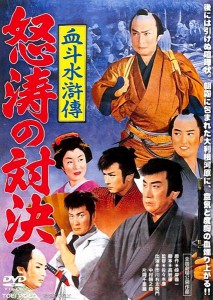
One of the great stories from Japan’s rich history comes to life in this true tale of the bloody showdown between two rival yakuza gangs in the 1840’s. The battle between Boss Sukegoro of Iioka and Boss Shigezo of Sasagawa has been portrayed many times, most notably in the first Zatoichi film, where the blind man befriends the tubercular ronin Hirate Miki, before cutting him down in one of the great duels in cinema history. This all-star extravaganza pulls out all the stops, with appearances by virtually all of the great actors and actresses from Toei’s studio at the time. Ichikawa Utaemon’s portrayal of the kind-hearted, noble yakuza boss Shigezo of Sasagawa contrasts sharply with the devious Sukegoro of Iioka. Corrupt as he may have been, his men were all willing to give up their lives for him.
Read More »
Self and Others (2001) Makoto Satô, Shigeo Gocho, Hidetoshi Nishijima, Documentary
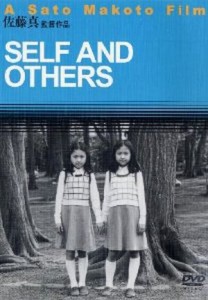
In 1983, photographer Gocho Shigeo met an early death at the young age of 36. The view we see reflected in Gocho’s photographic images has become more profound over time since his death and has struck a chord in people’s hearts. While focusing on Gocho’s collection of photographs Self and Others, the film also visits places associated with him, creating a collage with the manuscripts, letters, photographs and voice recordings remaining in an attempt to capture “one more gesture”—a theme pursued by Gocho through photographic expression. This film is neither a critical biography nor a monograph on the photographer. Rather, we are offered a new perception. As if mesmerized, the photographs Gocho left behind captivate us in their gaze.
Read More »
Tampopo (1985) Jûzô Itami, Ken Watanabe, Tsutomu Yamazaki, Nobuko Miyamoto, Comedy
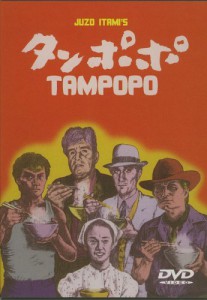
In this humorous paean to the joys of food, the main story is about trucker Goro, who rides into town like a modern Shane to help Tampopo set up the perfect noodle soup restaurant. Woven into this main story are a number of smaller stories about the importance of food, ranging from a gangster who mixes hot sex with food, to an old woman who terrorizes a shopkeeper by compulsively squeezing his wares.
Read More »
Gorotsuki mushuku / Patience Has an End (1971) Yasuo Furuhata, Ken Takakura, Yoko Hayama, Mayumi Kajiwara, Action, Drama
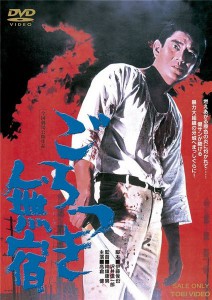
Young coal miner Takeda leaves Kyushu in search of a better job in Tokyo, only to fall into the lucrative yet dangerous life of a yakuza.
Read More »
Daibosatsu toge: Kanketsu-hen / Satan’s Sword 3 – The Final Chapter (1961) Kazuo Mori, Raizô Ichikawa, Tamao Nakamura, Katsuhiko Kobayashi, Action, Drama
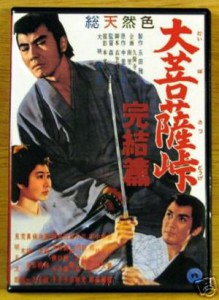
The Dai-bosatsu toge trilogy is based on Kaizan Nakazatos unfinished long series of novels (41 books, written from 1913 to 1941). Set in the last period of the Tokugawa Shogunate, Daibosatsu Toge tells the story of Tsuke Ryunosuke, a nihilistic swordmaster who doesnt hesitate to kill anyone, bad or good.
Read More »
Shukujo wa nani o wasureta ka / What Did The Lady Forget? (1937) Yasujirô Ozu, Sumiko Kurishima, Tatsuo Saitô, Michiko Kuwano, Comedy, Drama
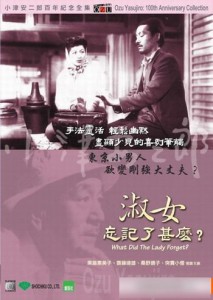
An affluent medical professor, Komiya, and his bossy wife, Tokio, are to look after Setsuko, their high-spirited niece from Osaka. Setsuko is a liberated woman who does what she wants, including smoking, even though she is a minor. On Saturday, the professor does not feel like going to his weekend golf game, but his wife packs him off anyway. So he leaves his bag at the apartment of his student Okada, and goes to a bar with a friend. Setsuko traces him there, and insists that he take her to a geisha house. When she gets rather tipsy, the professor calls Okada to take her home, while he sleeps at Okada’s. The wife becomes suspicious of Setsuko when she sees Okada bringing her home, and also of her husband when she discovers that he did not go golfing.
Read More »
0.5 miri / 0.5 mm (2014) Momoko Andô, Sakura Andô, Miyoko Asada, Bengal, Drama
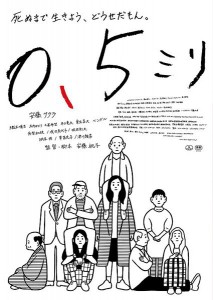
Sawa Yamagishi (Sakura Ando) worked as a nursing-care helper. The family of an old man asked Sawa to sleep with him, which led her to eventually lose her job and house. Now, she has nowhere to go. Sawa finds elderly people in trouble and gets involved in their lives. Meeting them, their lives change and Sawa’s own wounds start to heal.
Read More »
Dan Oniroku Bijo nawa jigoku / Beauty in Rope Hell (1983) Genji Nakamura, Miki Takakura, Maya Itô, Daisuke Iijima, Drama, Erotic
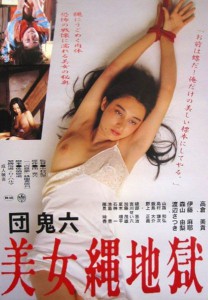
A mailman becomes obsessed with a pretty, young wife. He captures the woman, tortures her and keeps her in his basement dungeon where she becomes his private sex toy.
Read More »
Kuroi jûnin no onna / Ten Women in Black (1961) Kon Ichikawa, Fujiko Yamamoto, Keiko Kishi, Tamao Nakamura, Drama
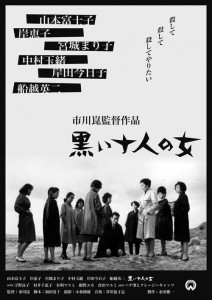
Weary of their lot, ten women – all mistresses of the same philandering businessman – join forces to wreak revenge upon him. A comedy of reversed expectations, gleefully upending traditional onscreen representations of gender (the women here act and talk like men, while the men are weak, confused or ineffectual), it’s shot in an exaggerated noir-ish manner – complete with multiple flashbacks and highly stylised visuals – that serves highlight the artificiality of its conceit.
Read More »
Ran (1985) Akira Kurosawa, Tatsuya Nakadai, Akira Terao, Jinpachi Nezu, Action, Drama
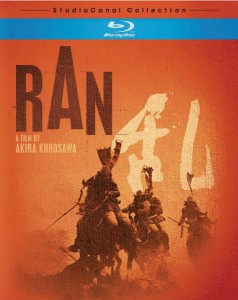
With Ran, legendary director Akira Kurosawa reimagines Shakespeare’s King Lear as a singular historical epic set in sixteenth-century Japan. Majestic in scope, the film is Kurosawa’s late-life masterpiece, a profound examination of the folly of war and the crumbling of one family under the weight of betrayal, greed, and the insatiable thirst for power.
Read More »